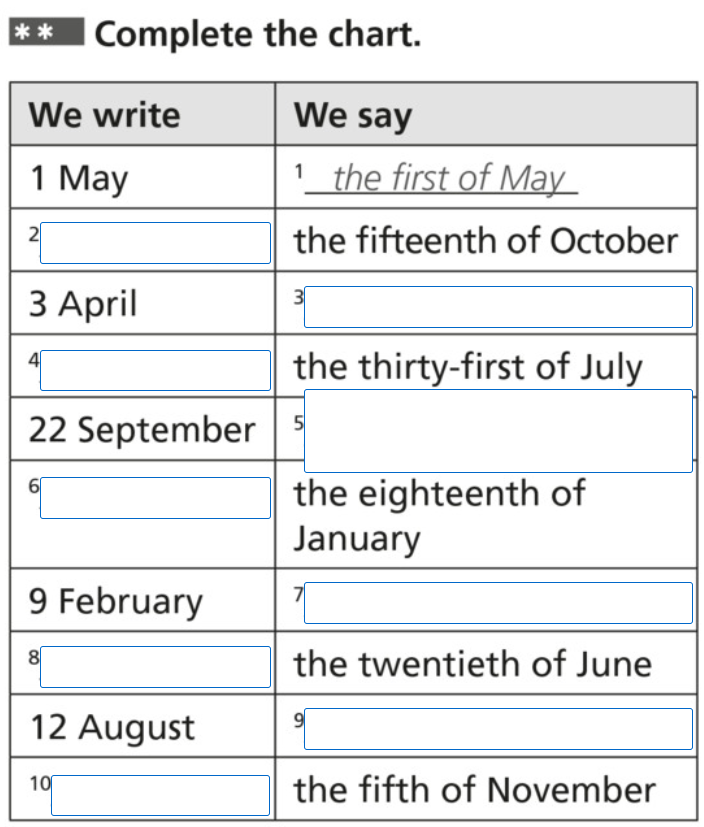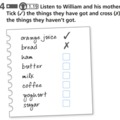Az angolban a dátumokat fordítva mondjuk: először a nap, utána a hónap.
Pl. október 6. (október hatodika) = 6 October (the sixth of October)
Vigyázz! Máshogy mondjuk, mint ahogy írjuk:
így írjuk: 6 October (vagy csak számmal: 6/10),
de így mondjuk: the sixth of October
Szabály: THE sorszámnév OF hónap
Így írjuk: így mondjuk:
(1/5) 1 May the first of May
(10/1) 10 January the tenth of January
(28/7) 28 July the twenty-eighth of July
(3/4) 3 April the third of April
(22/6) 22 June the twenty-second of June
(31/8) 31 August the thirty-first of August
What's the date today? When is your birthday?
Gyakorlás
Hallás alapján válaszd ki a dátumot!
Hogyan írjuk számmal a dátumokat?

A bejegyzés trackback címe:
Kommentek:
A hozzászólások a vonatkozó jogszabályok értelmében felhasználói tartalomnak minősülnek, értük a szolgáltatás technikai üzemeltetője semmilyen felelősséget nem vállal, azokat nem ellenőrzi. Kifogás esetén forduljon a blog szerkesztőjéhez. Részletek a Felhasználási feltételekben és az adatvédelmi tájékoztatóban.


